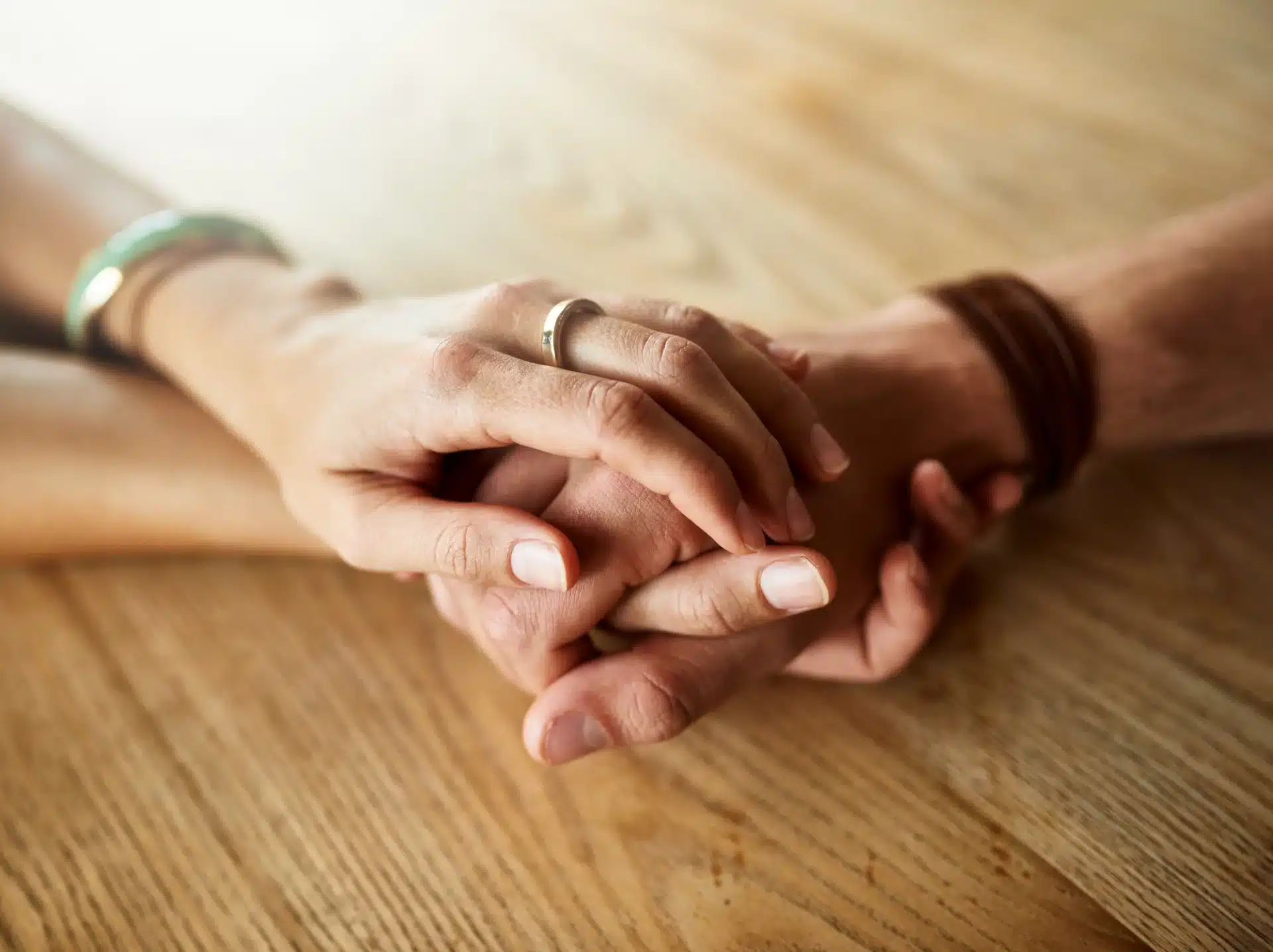
Sex Addiction and Intimacy Issues Treatment
Regain control of your relationships and find deeper emotional fulfillment.
Heal Sex and Intimacy Issues to Build Healthier Relationships
At our treatment centers, we provide a supportive environment to help you heal from sex addiction, intimacy disorders, and porn addiction. Our programs are designed to help you regain control over compulsive behaviors, develop healthier relationships, and rebuild trust.
Personalized Treatment to Address Core Issues
Our approach to treating sex addiction and intimacy disorders is customized to your needs. We focus on addressing the harmful behaviors and the underlying emotional issues driving those behaviors. By working on both the symptoms and their root causes, we help you regain control over your life, build healthier relationships, and develop a more fulfilling sense of intimacy.

Inpatient Sex Addiction Treatment
Inpatient Sex and love Addiction Treatment Near You
Our inpatient sex addiction rehab centers provide intensive, daily support in a structured environment. This option is ideal for those who need focused care to start their recovery journey.
Our Residential Sex Addiction Treatment Centers
Outpatient Sex Addiction Treatment
Outpatient Sex and Love Addiction Treatment Near You
Receive expert support while continuing with your daily responsibilities, ensuring you stay on track toward recovery. Explore our 8-week intensive outpatient programs.
Our Outpatient Sex Addiction Treatment Centers
How We Treat Sex Addiction and Intimacy Disorders
Brain Center
Our Brain Center uses advanced tools to support brain function, crucial for overcoming compulsive behaviors linked to sex addiction and intimacy disorders. These tools help you regulate your impulses and develop healthier coping mechanisms.
Types of Therapy
Each treatment plan for sex addiction and intimacy disorders includes various therapies that help you manage compulsive behaviors, rebuild trust, and develop healthier relationships. This approach strengthens your emotional health and helps you create lasting changes.
The Meadows Model
At our treatment centers, we use the Meadows Model to uncover the emotional patterns fueling sex addiction, intimacy issues, and porn addiction. This approach helps you break free from destructive behaviors and build a foundation for healthier, more authentic connections.
They changed my life. Now I have a career helping people who struggle with mental health and addiction as I did.
Thomas
MBH Alumni
-
Sex Addiction Treatment FAQ
What are the different kinds of sex addiction?
Sex Addiction can manifest in many forms and affects people in different ways. Common types include:
Sexual Compulsivity
Pornography Addiction
Relationship Addiction
Internet Sex Addiction
Sexual Anorexia
Sex Addiction in Young Adults
Is something wrong with me if I don’t want sex—or want it too much?
Not at all. Sexual desire varies widely between individuals and across different life stages. It can become a concern when it causes distress, impacts relationships, or stems from unresolved emotional or psychological issues. If you are feeling confused or conflicted about your sexual behavior or lack of interest, a member of our team can help. Give us a call at 928.260.3568.
How do I talk to my partner about my trauma or intimacy struggles?
Talking about trauma can feel very vulnerable, but openness can lead to deeper connection and understanding. Choose a calm time to talk, and explain that you want to share something important. Use “I” statements to describe your experiences (e.g., “I sometimes struggle with intimacy because of things from my past”). It’s okay to take things slow and ask for patience and support. If the conversation feels too overwhelming, seeking professional help could be a helpful step.
Can relationships survive sexual trauma or long-term intimacy issues?
Yes, many relationships not only survive but grow stronger through the healing process. With the right support, including treatment and open communication, relationships can work through the effects of trauma. Recovery takes time, but it’s absolutely possible when both partners are committed to understanding and supporting one another.
How can I support a loved one struggling with sex addiction and intimacy issues?
Supporting a loved one struggling with sex addiction and intimacy issues starts with listening and letting them know they are not alone. Educate yourself about what they are going through so you can better understand what they are experiencing. It is essential to prioritize your own well-being so that you can consistently offer compassionate support. Reach out to our team to discuss treatment and what options might be best for your loved one at 928.260.3568.
How can I support a partner who has experienced sexual trauma?
Supporting a partner with sexual trauma — whether from their childhood or as an adult — starts with being a safe, nonjudgmental presence, respecting their boundaries, listening, and avoiding pressuring them physically or emotionally. Encourage them to seek help if they haven’t already, and consider couples workshops or therapy to work through the journey of healing.
What are the common signs and symptoms of someone struggling with sex addiction and intimacy?
Signs and symptoms can vary, but common signs include:
Difficulty maintaining healthy relationships
Preoccupation with sexual thoughts or behaviors
Using sex to cope with stress, shame, or emotional pain
Engaging in risky or secretive behaviors
Feelings of guilt, shame, or powerlessness around sexual behavior
Avoidance of intimacy or emotional closeness
Repeated failed attempts to control or stop the behavior
Where can I find help for healing sexual trauma and improving intimacy?
Healing from sexual trauma and improving intimacy is possible with the right support. There are several levels of treatment, such as inpatient, outpatient, and workshops, that help you achieve recovery. To learn more and discuss what option is best for you or a loved one, give us a call at 928.260.3568.
How do I get started with sex addiction treatment?
The first step in starting treatment at The Meadows for sex addiction and intimacy issues begins with connecting with our team. You can contact our team through our online contact form or by giving us a call at 928.260.3568. We are here to guide you through each step of your healing process and reach lasting recovery.
Does The Meadows provide post-treatment recovery support?
At The Meadows, we know that recovery doesn’t end when treatment concludes. The Meadows offers several options for aftercare, including step-down programs through our outpatient programs with locations across the country offering Partial Hospitalization Programs (PHP), Intensive Outpatient (IOP), and Outpatient (OP). Additionally, we have an experienced Case Management team, and our alumni program, Onward, is open to any individual who has gone through one of our programs. Onward provides individuals with a supportive community committed to ongoing resources and empowerment, knowing that recovery is a lifelong journey.
Does treatment for sex addiction and intimacy include Family Education and/or support?
Family or friend involvement is crucial to the healing process for sex addiction and intimacy issues. In our programs, we offer a variety of resources for family members, including educational and communication tools, as well as, in some cases, onsite workshops. The decision to attend a family program is guided by several factors, including the length of stay, clinical appropriateness, patient desire, and others. Once admitted, our team members will work with the patient and their family to determine the next steps.

Traveling for Care?
People from all over choose The Meadows for expert care in trauma, addiction, and mental health, a private environment, and extraordinary recovery outcomes. We ensure every step of your journey is supported so you can focus fully on healing.

Restore Your Relationships
We’re here to help you rebuild trust and restore healthier, more fulfilling connections. Contact our admissions team to find the best treatment for you.